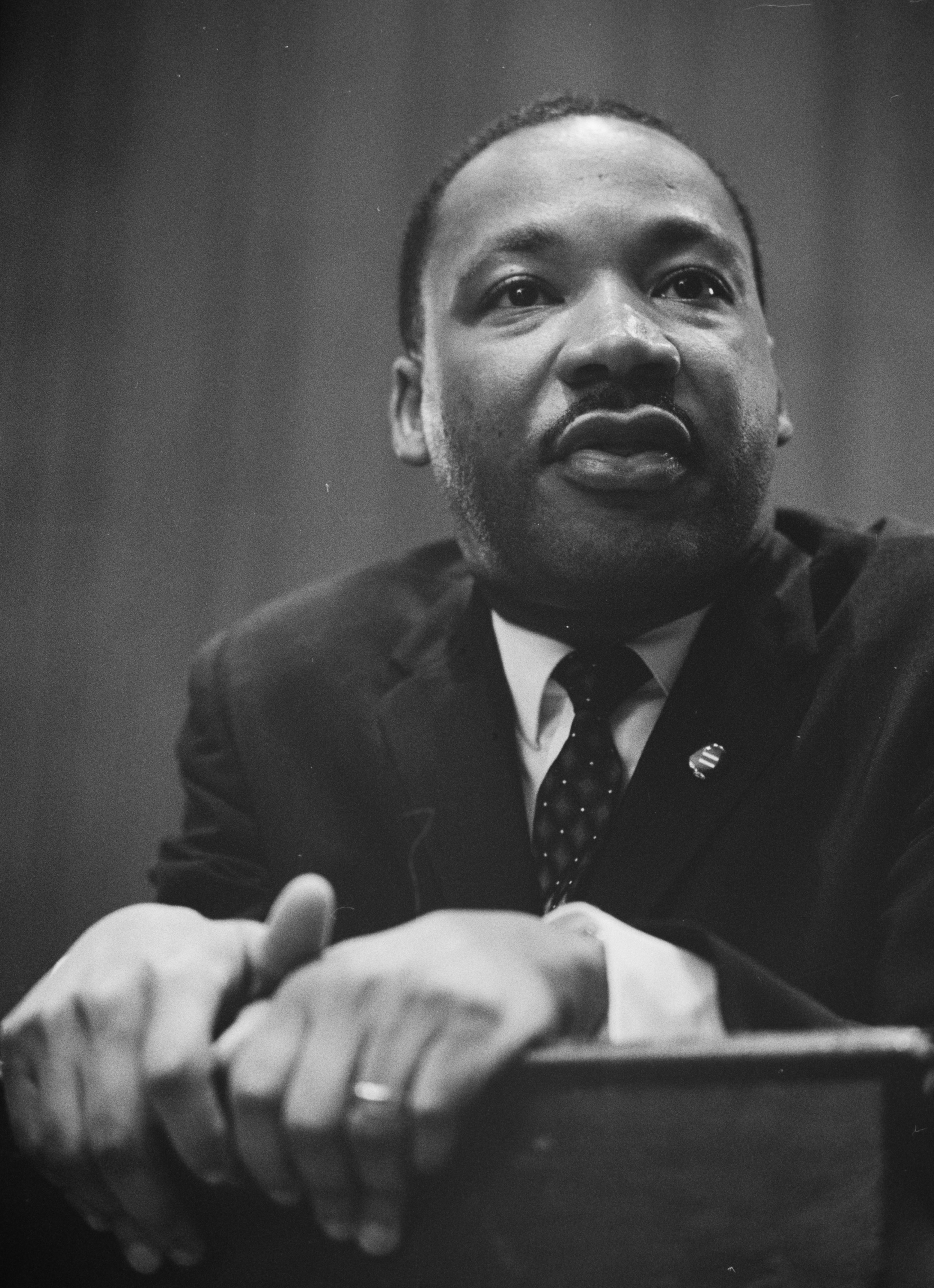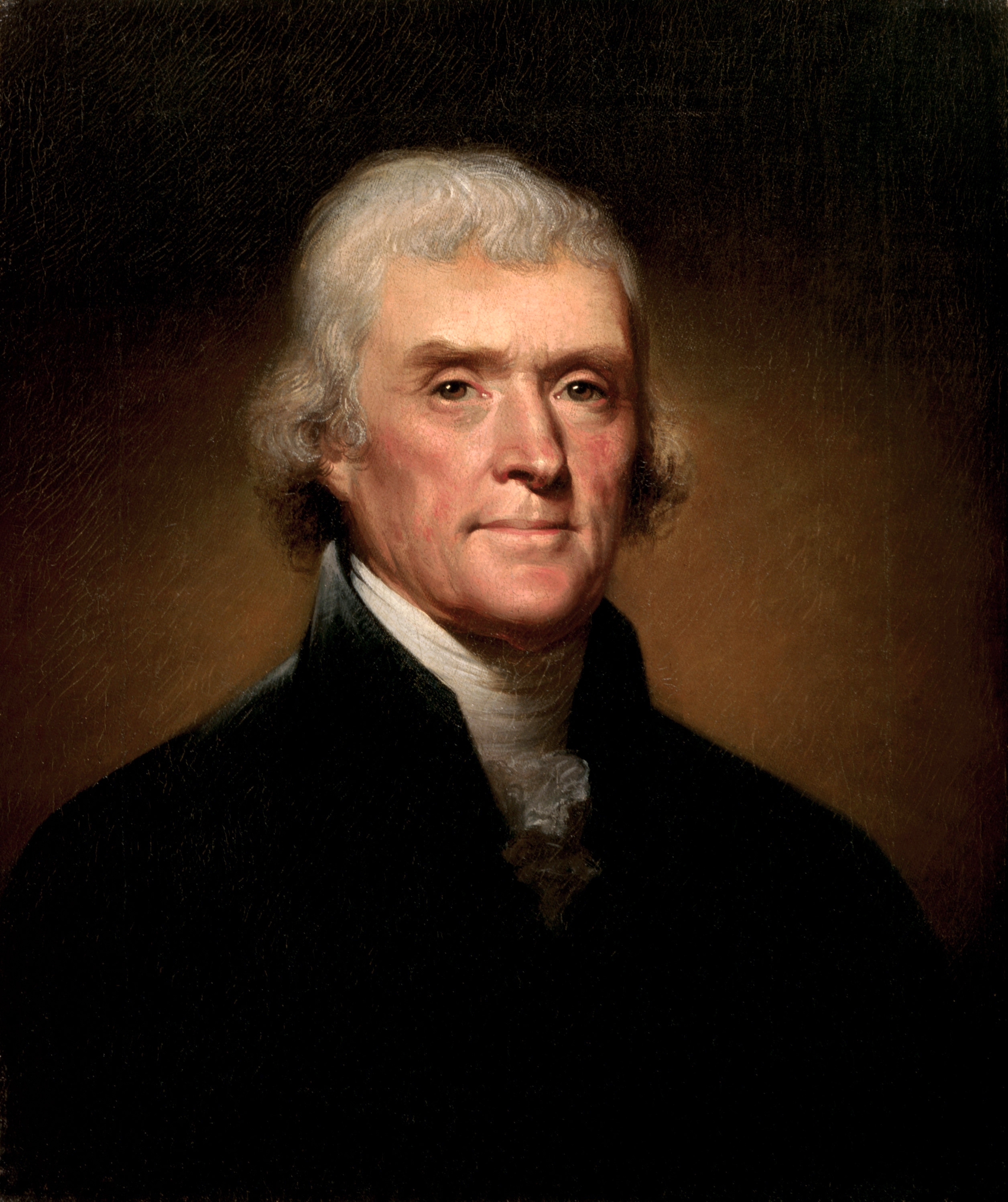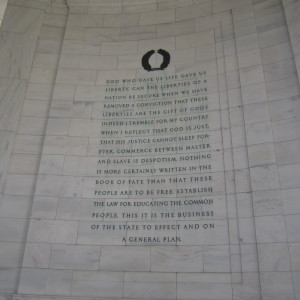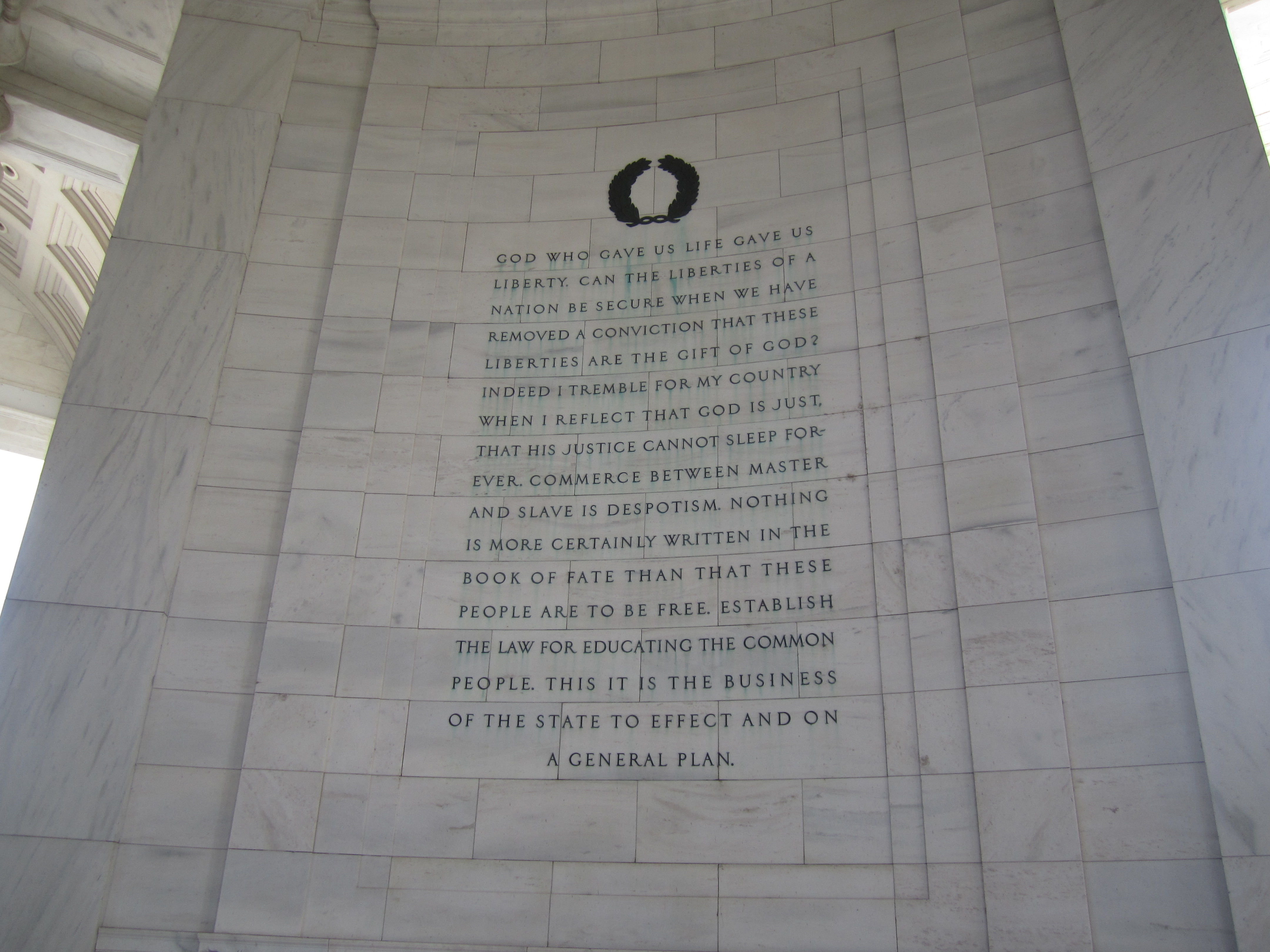Carl A. Anderson gave the Address at the National Catholic Prayer Breakfast last month, and spoke eloquently on the place of religion in the public square. He cited to President Kennedy’s 1961 Inaugural Address, in which the president spoke of the rights for which “our forebears fought,” namely “the belief that the rights of man come not from the generosity of the state, but from the hand of God.” Anderson added:
“Stone of Hope,” Martin Luther King, Jr. Memorial No one here needs to be reminded that this belief was the driving force behind the life’s work of the Reverend Martin Luther King, Jr.
In his historic letter from the Birmingham jail, Rev. King said that he and his followers “were in reality standing up for what is best in the American dream and for the most sacred values in our Judeo-Christian heritage, thereby bringing our nation back to those great wells of democracy which,” he said, “were dug deep by the founding fathers in their formulation of the Constitution and the Declaration of Independence.”But perhaps we do need to be reminded that King’s letter relied upon our own Catholic natural law tradition.
He cited Saint Augustine that “an unjust law is no law at all.”
And he asked, “How does one determine when a law is just or unjust? A just law is a man-made code that squares with the moral law or the law of God. An unjust law is a code that is out of harmony with the moral law.”
He then went on to say, “To put it in the terms of Saint Thomas Aquinas, an unjust law is a human law that is not rooted in eternal and natural law.”
There you have the ancient teaching of the Catholic Church, summed up by a Baptist preacher under arrest for living by it.
When you visit the new memorial to Dr. King on our national mall, read carefully the 14 quotations inscribed there. You will not find a single reference to God. Not one.Imagine how those in authority must have searched to come up with 14 quotes of Dr. King without one mention of the Almighty.
There is no much shocking symbol of the ongoing campaign to drive religion out of our public life.
Jefferson Memorial – The “God Who Gave Us Life” Inscription King’s statue looks across the Tidal Basin to the Jefferson Memorial dedicated to the president who is now championed by secularists for inventing a “wall of separation” between Church and State.
Ironically, while the King Memorial was scrubbed of any reference to our Creator, in Mr. Jefferson’s memorial, the walls tell us that “The God who gave us life, gave us liberty.”
And they ask us, “Can the liberties of a nation be secure when we have removed a conviction that these liberties are the gift of God?”
A great deal hinges on how we answer that question.
In case you’re curious, here are the inscriptions on the King Memorial:
- “We shall overcome because the arc of the moral universe is long, but it bends towards justice.” (16 August 1967, Atlanta, GA)
- “Darkness cannot drive out darkness, only light can do that. Hate cannot drive out hate, only love can do that.” (1963, Strength to Love)
- “I believe that unarmed truth and unconditional love will have the final word in reality. This is why right, temporarily defeated, is stronger than evil triumphant.” (10 December 1964, Oslo, Norway)
- “Make a career of humanity. Commit yourself to the noble struggle for equal rights. You will make a greater person of yourself, a greater nation of your country, and a finer world to live in.” (18 April 1959, Washington, DC)
- “I oppose the war in Vietnam because I love America. I speak out against it not in anger but with anxiety and sorrow in my heart, and above all with a passionate desire to see our beloved country stand as a moral example of the world.” (25 February 1967, Los Angeles, CA)
- “If we are to have peace on earth, our loyalties must become ecumenical rather than sectional. Our loyalties must transcend our race, our tribe, our class, and our nation; and this means we must develop a world perspective.” (24 December 1967, Atlanta, GA)
- “Injustice anywhere is a threat to justice everywhere. We are caught in an inescapable network of mutuality, tied in a single garment of destiny. Whatever affects one directly, affects all indirectly.” (16 April 1963, Birmingham, AL)
- “I have the audacity to believe that peoples everywhere can have three meals a day for their bodies, education and culture for their minds, and dignity, equality and freedom for their spirits.” (10 December 1964, Oslo, Norway)
- “It is not enough to say ‘We must not wage war.’ It is necessary to love peace and sacrifice for it. We must concentrate not merely on the negative expulsion of war, but on the positive affirmation of peace.” (24 December 1967, Atlanta, GA)
- “The ultimate measure of a man is not where he stands in moments of comfort and convenience, but where he stands at times of challenge and controversy.” (25 February 1967, Los Angeles, CA)
- “Every nation must now develop an overriding loyalty to mankind as a whole in order to preserve the best in their individual societies.” (4 April 1967, Riverside Church, New York, NY)
- “We are determined here in Montgomery to work and fight until justice runs ‘down like water, and righteousness like a mighty stream.’” (5 December 1955, Montgomery, AL)
- “We must come to see that the end we seek is a society at peace with itself, a society that can live with its conscience.” (16 April 1963, Birmingham, AL)
- “True peace is not merely the absence of tension: it is the presence of justice.” (16 April 1963, Birmingham, AL)
 |
| Martin Luther King, Jr. |
 |
| Rembrandt Peale, Thomas Jefferson (1800) |
Secularists, like the none-too-modest folks at “RationalWiki” frequently work themselves into a panic over false threats like an American theocracy, or Dominionism, and the Fundamentalists they claim are the American Taliban. This fear-mongering is absurd: if you want to see what America would look like with a greater infusion of Judeo-Christian values, just look to our own history. We’ve never been a Taliban-style theocracy, and there’s no serious threat of us ever becoming one.
Quite the opposite is true, in fact. The Judeo-Christian belief that some rights come directly from God, rather than the State, is the best check against tyranny. America was founded on the idea that “We hold these truths to be self-evident, that all men are created equal, that they are endowed by their Creator with certain unalienable Rights, that among these are Life, Liberty and the pursuit of Happiness.” Cut out the Creator, and the rights are no longer inalienable. So the true threat is the one that President Kennedy identified: that we’ll forget that “the rights of man come not from the generosity of the state, but from the hand of God.”
One of the most pernicious effects of the purging of God from the public square isn’t even about religion, per se, but about our rights. If our rights come from Nobody higher than the State, then the State has the power and authority to remove those rights, should they wish. This is a prospect that everyone, religious or not, should be troubled by.



Once again, I blame Rawls and his unfortunate ability to unite the right & left:
“Although [his] political liberalism upholds the right to freedom of speech, it severely limits the kinds of arguments that are legitimate contributions to political debate, especially debate about constitutional essentials and basic justice. This limitation reflects the priority of the right over the good. Not only may government not endorse one or another conception of the good, but citizens may not even introduce into political discourse their comprehensive moral or religious convictions, at least when debating matters of justice and rights. Rawls maintains that this limitation is required by the “ideal of public reason”. According to this ideal, political discourse should be conducted solely in terms of “political values” that all citizens can reasonably be expected to accept. Because citizens of democratic societies do not share comprehensive moral and religious conceptions, public reason should not refer to such conceptions.” http://people.brandeis.edu/~teuber/rawls3.html
“If our rights come from Nobody higher than the State, then the State has the power and authority to remove those rights, should they wish.”
Natural law, Vox populi vox Dei, we should have these rights because we’ve earned them, we as a society demand these rights, and the constitution guarantees them and has worked thus far… there are numerous other ways you can justify our rights that don’t involve “God says so” or “The state says so.”
The fact that religion is so often used by governments to deprive people of their rights is a strong argument for avoiding mixing the two.
Anyway, we remember King for his civil rights activism, not anything else. Historical figures we revere are always simplified. Ignoring his religion isn’t anti-religion.
Phil,
I’m a believer in natural law, and believe that one can know natural law apart from revealed religion. But I’d resist equating it with Vox populi vox Dei. One need look no further than the Jim Crow laws that King lead the fight against to see the problems with relying on the majority for rights. And if we’ve “earned” these rights somehow, how? And can we “un-earn” them?
I’d also be curious if you see any examples of a state that rests securely in natural law rights without viewing God or the State as the source of those rights. Using our own Constitutional history as evidence doesn’t work, since for most of our history, we believed, as the Declaration of Independence declares, that the rights come from God. If we now reject this tenet, I’d be curious with what precisely we are (or should be) replacing it with, and how that’s worked elsewhere.
Finally, you say, “we remember King for his civil rights activism, not anything else.” I think that this ignores two facts. First, that the inscriptions wall manages to make room for his opposition to war (twice: once specific to Vietnam), and his general desire for peace. So it’s not as if the wall was limited to his opposition to Jim Crow.
But in any case, you can’t tell the story of the civil rights movement honestly without talking about God and religion. It’s not a coincidence that almost every leader in the movement was a pastor. And seriously, the civil rights organization that King headed was the Southern Christian Leadership Conference. Cutting all of this out isn’t just unfaithful to Dr. King’s personal legacy, but is unfaithful to the legacy of the civil rights movement.
I.X.,
Joe
The gay-rights movement seems to be justifying itself mostly without saying God is on their side. Nearly the opposite, it’s the opponents of gay rights that make those claims. In that context, I’d argue that leaving religion out of it is all the more relevant, the quotes show that civil rights can move forward without being grounded in religion.
…I will admit that’s probably not the reason those quotes were left out. It was probably more to try to not offend anyone, which they seem to have done anyway.
I’d argue that one can in fact use the constitution as a basis for rights without the religious thought that went into it’s creation. By now, it’s been working for over 200 years. You don’t need to think that our rights come from God to say “These rights are working out for everyone pretty well, why change it?”
Rights can be justified by pretty much any moral system you have.
Phil,
I’m not positive I follow your thoughts here. Are you suggesting that you’re okay with a memorial to a historic event purging reference to the motivators of the actor being memorialized, and intentionally avoiding his own words on the subject to shirk offending someone? That seems like political correctness run amok, and I can’t tell if you’re defending it, or simply saying that’s probably what happened.
If the latter, I agree. My point is about secularism, not atheism. I’m not suggesting that anyone involved hated God or religion. Rather, they just seem to think that God-talk has no place in the public square… probably for the exact reason you mention (someone will claim to have hurt feelings). It’s a striking contrast, when you consider that they went with two anti-Vietnam War inscriptions, on the same Mall as the Vietnam War memorial.
In any case, given that, as a matter of history, religion played a huge role in the civil rights movement generally, and in the Rev. Dr. Martin Luther King’s rhetoric and thought specifically, a secular whitewash should bug anybody.
But even if the reason they were left out was because other motivators could have played a role in the civil rights movement, that’s hardly a justification, since the real-life motivators were largely religious. Think about it: would it be defensible to construct a memorial related to the Crusades while purging any reference to religion, just because some other motivator could have lead to war, instead?
I.X.,
Joe
Just saying that’s probably what happened.
I would say though that a “secular whitewash” doesn’t bug me since I see religious motivations being used to hold back civil rights today, rather than promote them.
I wouldn’t say that God-talk has no place in the public square, I’d say that in an increasingly secular society, MLK is still relevant.
Kennedy’s Inaugural Address, of course, also contains the famous line “ask not what your country can do for you—ask what you can do for your country.”
Our political discourse today comes much closer to “ask not what you can do for your country—ask what your country can do for you.”
I think your article illustrates well how we got so turned around.
Joe, I have a question.
The Constitution, First Amendment says:
“Congress shall make no law respecting an establishment of religion, or prohibiting the free exercise thereof”
Is that equivalent to saying:
“Congress shall make no law respecting Christianity, or prohibiting the free exercise thereof”
Or, phrased another way, is it equivalent to saying:
“Congress shall make no law respecting Jesus’s teachings, or prohibiting the free exercise thereof”
If those are equivalent, which some say they are, then by definition laws cannot be based off of Christian teaching.
Nick, The first amendment states a government can not establish a national religion, not a single law that mirrors a christian commandment. “Thou shalt not kill” for instance. It is religious but also secular.
Phil, What civil right is religion holding back?
What the framers understood is that God has made laws of nature that when followed, the individual and/or society will benefit. Conversely, not followed, individuals or societies suffer over time. As we erase God from the public square, our country will inevitably become insignificant at best.
Gay rights.
That is my understanding as well. The “establishment of religion” clause prohibits Congress from establishing a national religion (explicitly or implicitly). Early in our nation, the states, however, were free to do this and Massachusetts for a while established the Episcopal Church as its state religion.